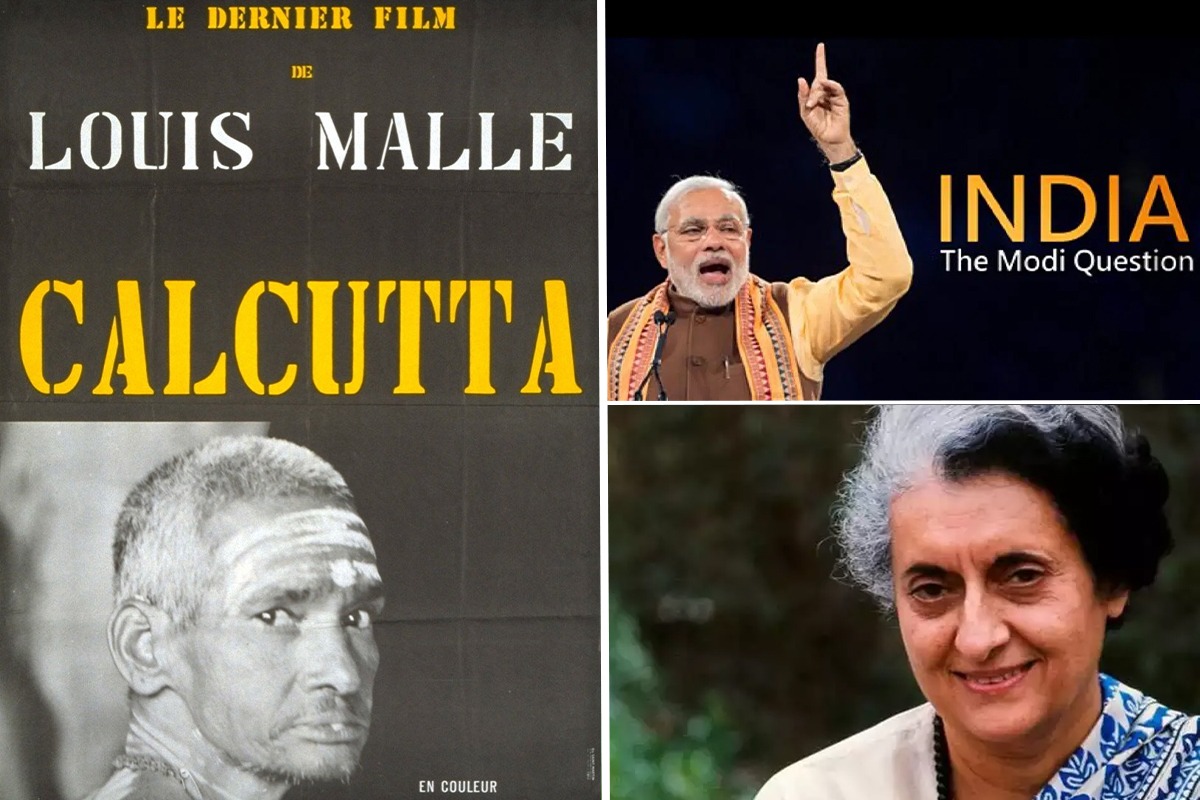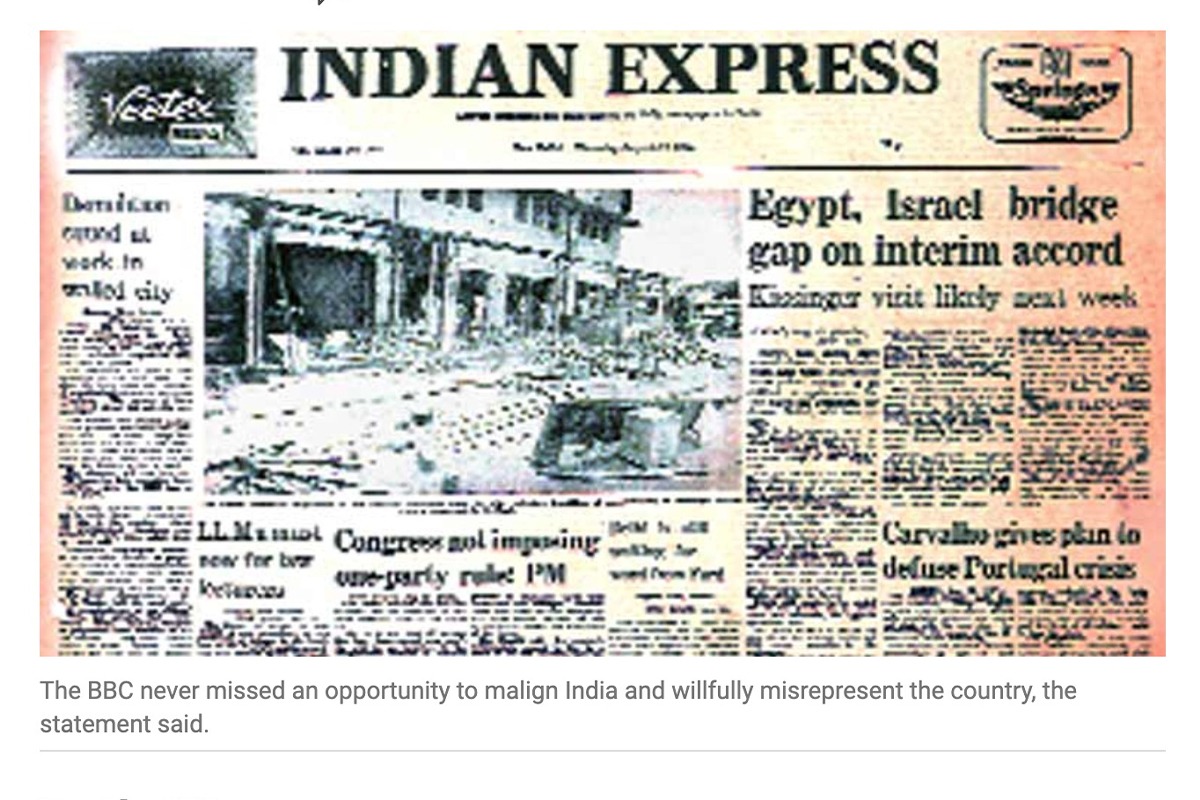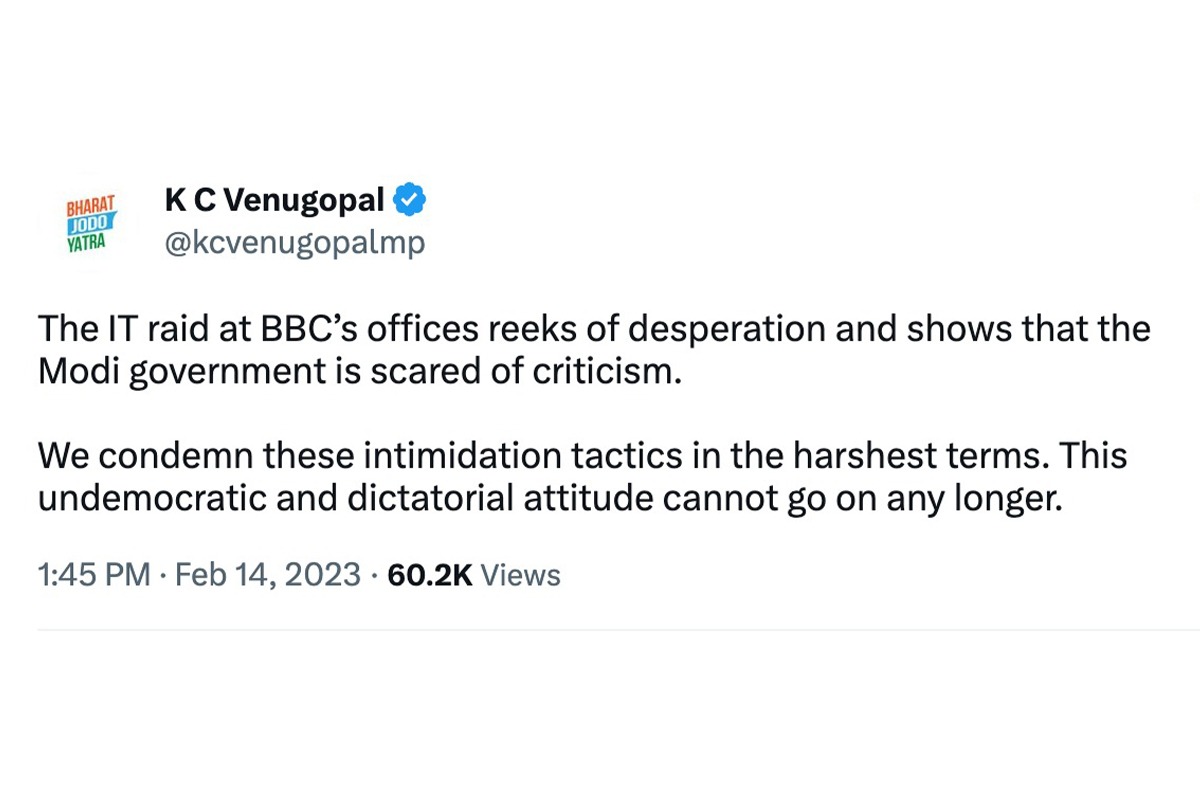The survey by the IT department at the BBC office is not the first time the Indian government and the national broadcaster of the UK have been at loggerheads.
The British broadcaster has entered into confrontations with the Indian government several times since our independence.
Be it showing a distorted map of India, biased reporting during the second Indo-Pak war in 1965, glorifying Zulfikar Ali Bhutto’s speech in the UN Security Council, giving a communal narrative to liberation movement, projecting India’s poverty in an ugly in its documentaries, or using a 25-year-old so-called investigation by UK high commission to make a dubious documentary attacking PM Narendra Modi’s role in the Gujarat riots – an issue that has been long settled by the highest judicial authority in India – there is no dearth of instances when the BBC has deliberately attempted to undermine India’s sovereignty.
In a research paper titled “A new kind of imperialism?” the BBC, cold war broadcasting and the contested geopolitics of South Asia, author Alasdair Pinkerton meticulously documents such examples, some of which The New Indian has listed below in addition to more recent events.
1961- BBC gives communal narrative to Goa liberation movement
BBC covered Goa’s independence from the Portuguese in the December of 1961 with a communal lens. The BBC bulletin on 23rd December implied that only the Hindu population was happy about the departure of the Portuguese and the Christians didn’t have a role to play in the liberation movement. Pinkerton writes,”It would be fit to recall that the truth has been totally different and Christians in Goa, like Hindus, have been in the forefront of the freedom struggle […] Characteristically the BBC constantly termed the liberation of Goa as an “attack” or “invasion” by India.”
1965 – Biased reportage on the second Indo-Pak war, glorification of Bhutto’s speech in the UN
Similarly, in 1965 when military conflict again erupted between India and Pakistan over Kashmir, the Ministry of External Affairs reported several instances of “strong anti-Indian bias” in the BBC’s reports. One of these was the BBC newsreel broadcast calling Zulfiqar Ali Bhutto’s speech in the Security Council on 22nd September 1965 as a” highly emotional speech” that made a very deep impact on the delegates. The correspondent also called it “the most impressive and effective speech of its kind in the Council’s history.”
1970 – Indira Gandhi bans BBC for refusing to pull down the derogatory portrayal of Indian poverty in its documentary
Even as Congress leads the cacophony against the IT surveys at the BBC office, it is pertinent to remember that the “lowest ebb” in the India-BBC relationship was the banning of the broadcaster for 2 years by the government under the leadership of Indira Gandhi. The BBC refused to pull down two extremely distasteful documentaries that highlighted India’s poverty.
The two documentaries, Calcutta and Phantom India made by French filmmaker Louis Malle had outraged the Indian diaspora in the United Kingdom for showcasing what we now call poverty porn. “Within the days and weeks following the broadcast, the Indian High Commission in London reported receiving ‘a deluge of letters […] expressing their concern and distress at these films being derogatory to and highly biased against India,” Pinkerton writes.
There were hectic behind-the-scene discussions going on to manage this pseudo-diplomatic crisis. The author writes that the then Indian High Commissioner, Apa Pant alerted BBC and the foreign office of “the volume and tone of the complaints it had received, demanding the removal of the films from the schedules. But BBC declined to oblige. The matter had also become highly politicized with as many as 41 Congress MPs demanding the banning of BBC for broadcasting “notoriously anti-India stories.”
2015- Ban on BBC documentary India’s Daughter based on Nirbhaya rape case
Despite India’s protests, BBC released the controversial documentary “India’s Daughter” based on the Nirbhaya rape case. The filmmaker got exclusive access to the convicts in the case. The film, reportedly projected India as a hub of crime against women, thus tarnishing India’s global image.
2022 – India blocks online sharing or downloading of controversial BBC documentary on PM Narendra Modi based on a dubious 25-year-old report
Ministry of External Affairs was quick to discredit the two-part documentary, “India: The Modi Question” as a dubious piece of propaganda. The documentary was based on a report on the 2002 Gujarat riots, by the British High Commission and was a brainchild of former UK Foreign Minister Jack Straw. Over 300 eminent Indians questioned the factual accuracy of the documentary and condemned it for undermining the Indian judiciary.
Also Read: Jack Straw appeared on BBC documentary to woo Muslims, says Ashok Sajjanhar
Opposition’s shortsightedness on BBC surveys
The IT surveys at the BBC office have led to a unified attack by the Opposition on the Narendra Modi government. The Opposition, led by Congress condemned the action as censorship and an attempt to silence the media. They were quick to allege it was done in response to the broadcaster’s controversial documentary “India: The Modi Question.”
BJP spokesperson Gaurav Bhatia on Tuesday categorically stated that if the BBC wanted to function in India, it must adhere to Indian laws and not allow anti-India propaganda like describing a terrorist as “charismatic”, on its platform.
While today, the raids on BBC are being seen as an assault on freedom of speech or a mere vindictive act by the Modi government, when Indira Gandhi had banned BBC’s operation in India in 1970, it was read as an inflection point in the consciousness of the young nation. For the first time, the diaspora had come together to define Indian pride, and what narrative it would allow colonial relics like BBC to carry forward.
The British Broadcast Corporation (BBC) and the Government of India’s relationship have always been tense. Right from its entry in India in 1927, and the setting up of its first Hindi Radio Service in 1940, BBC has been integral to how India in the last decade of freedom struggle and after independence was recorded and relayed to the rest of the world.
BBC finds its legitimacy from the Royal Charter which mandates it “reflects the United Kingdom, its culture and values to the world”. A large part of their income is derived from license fees from the UK government. It was set up with the purpose of keeping British officers who lived in different colonies of the vast empire across the world, connected to their home country. However, soon, the BBC was used to target the host countries. They quickly branched out into vernacular radio services, becoming the only source of news for millions of Indians in pre and post-independent India.
Despite its colonial origin, they did not wind up their services after independence and to date continue to influence the global narrative on India. Due to their colonial origin, and their record of “biased” coverage, the Indian government has always been skeptical of BBC’s programming.
With BBC continuing to penetrate the Indian vernacular digital space, it is even more necessary that the Indian government keeps a hawk eye on its editorial and financial activities. There is enough proof to justify such skepticism.













